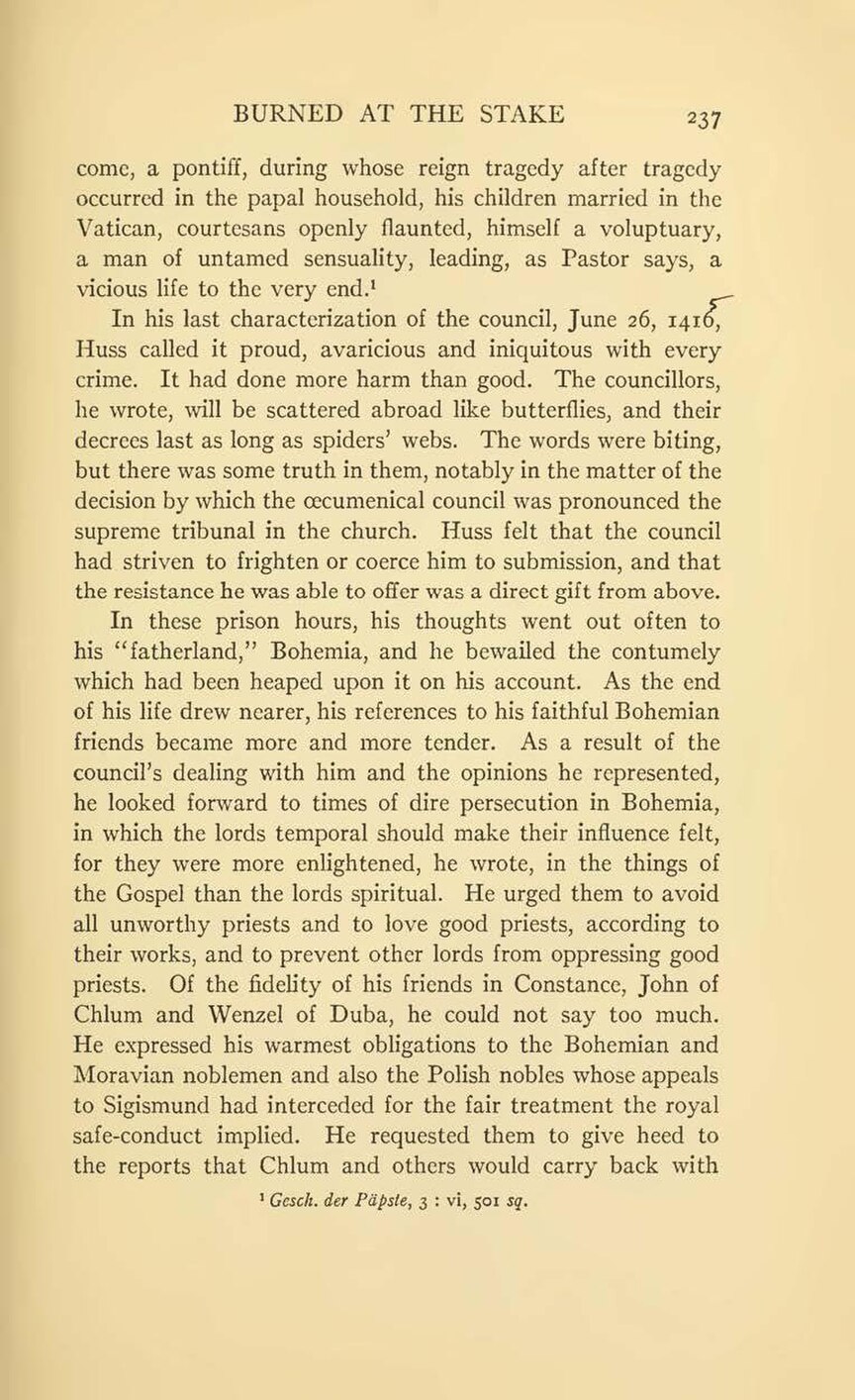come, a pontiff, during whose reign tragedy after tragedy occurred in the papal household, his children married in the Vatican, courtesans openly flaunted, himself a voluptuary, a man of untamed sensuality, leading, as Pastor says, a vicious life to the very end.[1]
In his last characterization of the council, June 26, 1416, Huss called it proud, avaricious and iniquitous with every crime. It had done more harm than good. The councillors, he wrote, will be scattered abroad like butterflies, and their decrees last as long as spiders’ webs. The words were biting, but there was some truth in them, notably in the matter of the decision by which the ecumenical council was pronounced the supreme tribunal in the church. Huss felt that the council had striven to frighten or coerce him to submission, and that the resistance he was able to offer was a direct gift from above.
In these prison hours, his thoughts went out often to his “fatherland,” Bohemia, and he bewailed the contumely which had been heaped upon it on his account. As the end of his life drew nearer, his references to his faithful Bohemian friends became more and more tender. As a result of the council’s dealing with him and the opinions he represented, he looked forward to times of dire persecution in Bohemia, in which the lords temporal should make their influence felt, for they were more enlightened, he wrote, in the things of the Gospel than the lords spiritual. He urged them to avoid all unworthy priests and to love good priests, according to their works, and to prevent other lords from oppressing good priests. Of the fidelity of his friends in Constance, John of Chlum and Wenzel of Duba, he could not say too much. He expressed his warmest obligations to the Bohemian and Moravian noblemen and also the Polish nobles whose appeals to Sigismund had interceded for the fair treatment the royal safe-conduct implied. He requested them to give heed to the reports that Chlum and others would carry back with
- ↑ Gesch. der Päpste, 3: vi, 501 sq.
